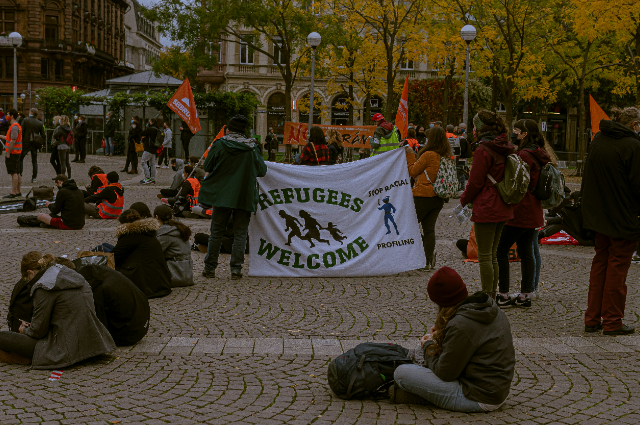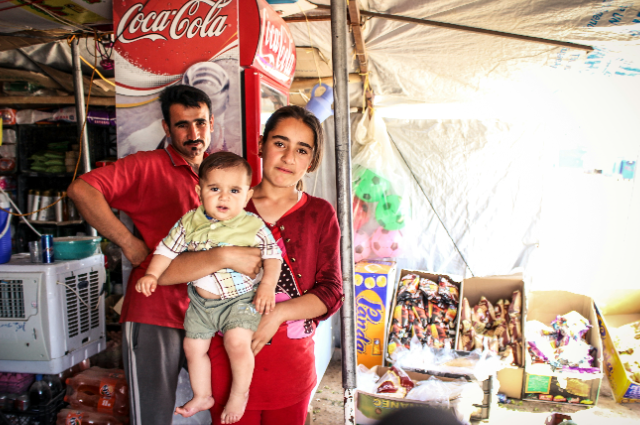
Photo by Folco Masi on Unsplash
Introduction
The issue of refugees has become a pressing global concern, with millions of people fleeing their homes due to conflict, persecution, or environmental disasters. While the plight of refugees garners widespread attention, the question of who bears responsibility for their protection and well-being remains contentious. In this article, we delve into the complex web of factors that shape the refugee crisis and explore the moral, legal, and practical considerations surrounding the responsibility towards refugees.
Understanding the Refugee Crisis
Refugees are individuals who are forced to flee their homes due to fear of persecution, conflict, or violence. The reasons for their displacement vary widely, from armed conflict and human rights abuses to environmental degradation and natural disasters. According to the United Nations High Commissioner for Refugees (UNHCR), there were over 26 million refugees worldwide by the end of 2020, with millions more displaced internally within their own countries.
The refugee crisis poses significant challenges for both host countries and the international community at large. Host countries often struggle to provide adequate resources and support for refugees, leading to overcrowded camps, strained infrastructure, and social tensions. Meanwhile, the international community grapples with questions of burden-sharing, human rights obligations, and the principles of sovereignty and non-interference.
Historical Perspectives on Refugee Responsibility
The concept of refugee protection has its roots in international law and humanitarian principles. The 1951 Refugee Convention, adopted in the aftermath of World War II, defines the rights of refugees and the legal obligations of states towards them. Under the convention, refugees are entitled to protection from refoulement (the forcible return to a country where they face persecution), access to asylum procedures, and basic rights such as education, healthcare, and work.
However, the implementation of these principles has often fallen short, particularly in cases where states prioritize their own security and political interests over their obligations to refugees. The politicization of refugee issues, coupled with rising nationalism and anti-immigrant sentiment in many parts of the world, has further complicated efforts to address the refugee crisis effectively.
The Role of States in Refugee Protection
States play a central role in providing protection and assistance to refugees within their borders. As signatories to the Refugee Convention and other relevant international treaties, states are legally bound to uphold the rights of refugees and ensure their well-being. This includes granting asylum to those in need, facilitating access to basic services, and promoting integration and self-reliance for refugees.
However, not all states fulfill their obligations towards refugees. Many developing countries, particularly those in regions affected by conflict and instability, host large numbers of refugees with limited resources and support from the international community. In contrast, wealthier countries in the global north often adopt restrictive immigration policies and prioritize border control measures, making it difficult for refugees to seek protection and asylum.
The Role of the International Community
Addressing the refugee crisis requires collective action and cooperation among states, international organizations, and civil society actors. The UNHCR plays a key role in coordinating refugee response efforts, providing humanitarian assistance, and advocating for the rights of refugees on the global stage. Additionally, regional organizations such as the European Union and the African Union have their own mechanisms for addressing refugee issues within their respective regions.
However, the international community's response to the refugee crisis has been uneven and often inadequate. Disagreements over burden-sharing, funding shortfalls, and competing geopolitical interests have hindered efforts to provide meaningful support to refugees and address the root causes of displacement. Moreover, the rise of populist movements and anti-immigrant sentiment in many countries has led to increasingly restrictive policies and a lack of political will to tackle the refugee crisis effectively.
Economic Implications of Refugee Crises
The influx of refugees can have significant economic implications for both host countries and the international community. While refugees often contribute to the labor force and stimulate economic growth in host communities, they may also strain public services and compete for scarce resources. Moreover, the long-term integration of refugees into host economies requires investments in education, skills training, and infrastructure. However, studies have shown that the economic benefits of refugee integration can outweigh the initial costs, leading to greater social cohesion and economic prosperity in the long run.
Environmental Displacement and Climate Refugees
In recent years, the issue of environmental displacement has gained increasing attention as climate change exacerbates natural disasters and environmental degradation around the world. Climate refugees, or those forced to flee their homes due to environmental factors such as rising sea levels, drought, and extreme weather events, pose unique challenges for refugee protection and response efforts. Unlike political refugees, climate refugees may not qualify for asylum under existing legal frameworks, highlighting the need for new approaches to address the intersection of climate change and displacement.

Photo by Jonathan Ramalho on Unsplash
Humanitarian Aid and Development Assistance
Humanitarian aid plays a crucial role in addressing the immediate needs of refugees, including food, shelter, and medical care. However, humanitarian assistance alone is not sufficient to address the underlying causes of displacement or support long-term solutions for refugees. Development assistance, aimed at promoting economic growth, poverty reduction, and social stability in countries of origin and transit, is essential for addressing the root causes of displacement and preventing future crises. By investing in education, healthcare, infrastructure, and livelihood opportunities, development assistance can help create conditions conducive to peace, stability, and prosperity for all.
The Role of Civil Society and Non-Governmental Organizations (NGOs)
Civil society organizations and NGOs play a vital role in providing humanitarian assistance, advocating for refugee rights, and promoting refugee integration and inclusion. From grassroots community organizations to large international NGOs, these actors work tirelessly to support refugees and address their diverse needs. Through advocacy, research, and direct service provision, civil society organizations contribute to shaping refugee policy, raising awareness, and building solidarity with refugees worldwide. Their work complements and reinforces the efforts of governments and international organizations, filling gaps in service delivery and amplifying the voices of refugees themselves.
Legal Protection and Access to Justice
Access to legal protection and justice is essential for safeguarding the rights and dignity of refugees. However, many refugees face barriers to accessing legal assistance and navigating complex asylum procedures. Legal aid organizations and refugee rights advocates play a critical role in providing legal support, representation, and advocacy for refugees, ensuring that their rights are upheld and protected. Moreover, efforts to strengthen legal frameworks for refugee protection, including reforms to asylum systems and policies, are essential for ensuring fair and effective refugee response mechanisms.
Empowering Refugee Communities
Empowering refugee communities to participate in decision-making processes that affect their lives and futures is essential for promoting self-reliance, resilience, and dignity. Refugees are not passive victims but active agents with valuable skills, knowledge, and experiences to contribute to their host societies. By involving refugees in community development projects, peacebuilding initiatives, and advocacy campaigns, we can harness their potential as drivers of positive change and social cohesion. Moreover, providing opportunities for education, skills training, and entrepreneurship can help refugees rebuild their lives and contribute to the economic development of their host communities.
Moving Forward: Towards a More Just and Compassionate Response
Addressing the refugee crisis requires a multi-faceted approach that combines humanitarian assistance, development aid, conflict prevention, and diplomacy. Key priorities include:
- Strengthening international cooperation and burden-sharing mechanisms to ensure that responsibility for refugees is shared more equitably among states.
- Addressing the root causes of displacement, including conflict, poverty, environmental degradation, and human rights abuses.
- Promoting refugee inclusion and integration in host communities through access to education, healthcare, and employment opportunities.
- Combating xenophobia and discrimination against refugees through education, awareness-raising, and advocacy efforts.
- Empowering refugees to participate in decision-making processes that affect their lives and communities.
Conclusion
The refugee crisis is a complex and multifaceted challenge that demands a collective response from the international community. While states have legal and moral obligations to protect and assist refugees, fulfilling these obligations requires political will, solidarity, and cooperation on a global scale. By addressing the root causes of displacement, promoting refugee inclusion and integration, and combating xenophobia and discrimination, we can work towards a more just and compassionate response to the plight of refugees around the world.
Disclaimer:
The information provided in this article is for educational and informational purposes only. While every effort has been made to ensure the accuracy and reliability of the information presented, the author and publisher make no representations or warranties of any kind, express or implied, about the completeness, accuracy, reliability, suitability, or availability with respect to the content contained herein. Any reliance you place on such information is therefore strictly at your own risk.
The views and opinions expressed in this article are those of the author and do not necessarily reflect the official policy or position of any organization, agency, employer, or company. References to specific organizations, agencies, or products are for illustrative purposes only and do not imply endorsement or recommendation by the author or publisher.
Furthermore, the content of this article should not be construed as legal, financial, medical, or professional advice. Readers are encouraged to consult appropriate professionals for advice tailored to their specific circumstances. The author and publisher shall not be liable for any loss or damage arising from the use of or reliance on the information presented in this article.
. . .
References:
1. Economic Implications of Refugee Crises:
- Betts, Alexander, and Paul Collier. "Refuge: Transforming a Broken Refugee System." Penguin UK, 2017.
- Refugee Studies Centre. "The Economic Impact of Refugees on Host Countries: A Survey of the Evidence." Refugee Studies Centre, University of Oxford, 2018.
2. Environmental Displacement and Climate Refugees:
- United Nations High Commissioner for Refugees (UNHCR). "Climate Change and Displacement: Protecting Refugees in the Context of Environmental Change." UNHCR, 2020.
- McLeman, Robert, and Jeanette Schade. "Migration in the Context of Vulnerability and Adaptation to Climate Change: Insights from Analogues." Wiley Interdisciplinary Reviews: Climate Change, vol. 4, no. 5, 2013, pp. 449–61.
3. Humanitarian Aid and Development Assistance:
- United Nations Development Programme (UNDP). "Human Development Report 2020: The Next Frontier - Human Development and the Anthropocene." UNDP, 2020.
- Overseas Development Institute (ODI). "The Role of Development Assistance in Addressing the Refugee Crisis." ODI, 2017.
4. The Role of Civil Society and NGOs:
- Carey, Caroline. "On the Margins of the World: The Role of NGOs in Responding to Refugee Displacement." Journal of Refugee Studies, vol. 21, no. 1, 2008, pp. 1–18.
- Amnesty International. "Civil Society under Attack: Repression of NGOs and Human Rights Defenders Worldwide." Amnesty International, 2021.
5. Legal Protection and Access to Justice:
- UNHCR. "Handbook on Procedures and Criteria for Determining Refugee Status under the 1951 Convention and the 1967 Protocol Relating to the Status of Refugees." UNHCR, 2021.
- Refugee Rights Europe. "Access to Asylum in Europe: Seeking Protection amid Legal and Practical Obstacles." Refugee Rights Europe, 2019.
6. Empowering Refugee Communities:
- Refugee Empowerment Network. "Empowering Refugee Communities: A Handbook for Service Providers." Refugee Empowerment Network, 2018.
- United Nations Refugee Agency. "The 10-Point Plan of Action for Refugee Education." UNHCR, 2019.
